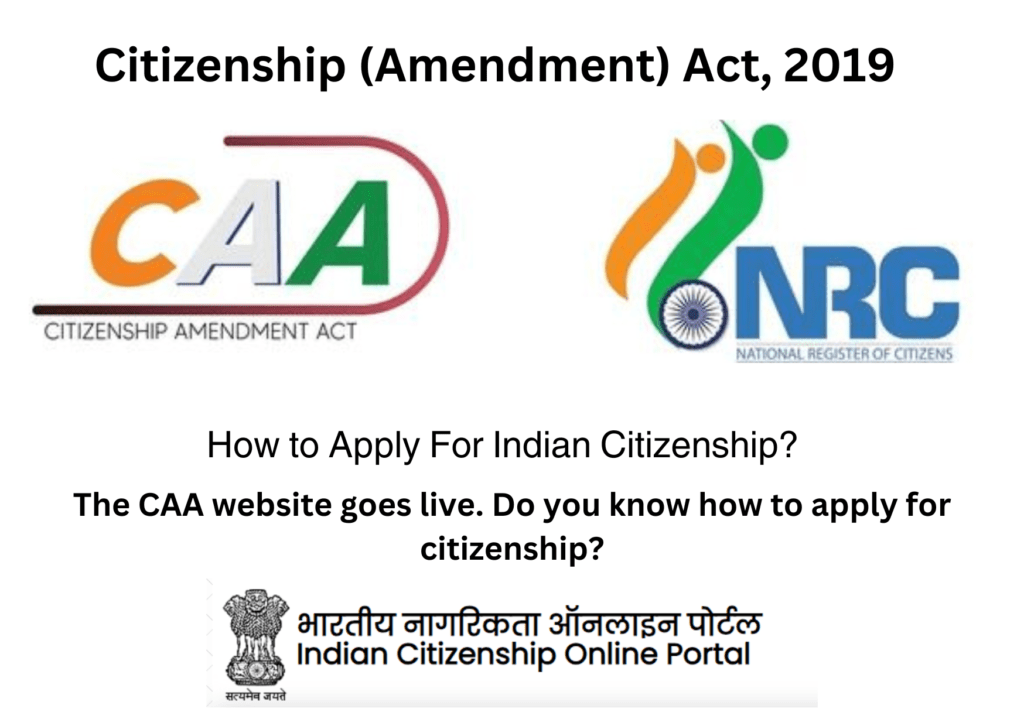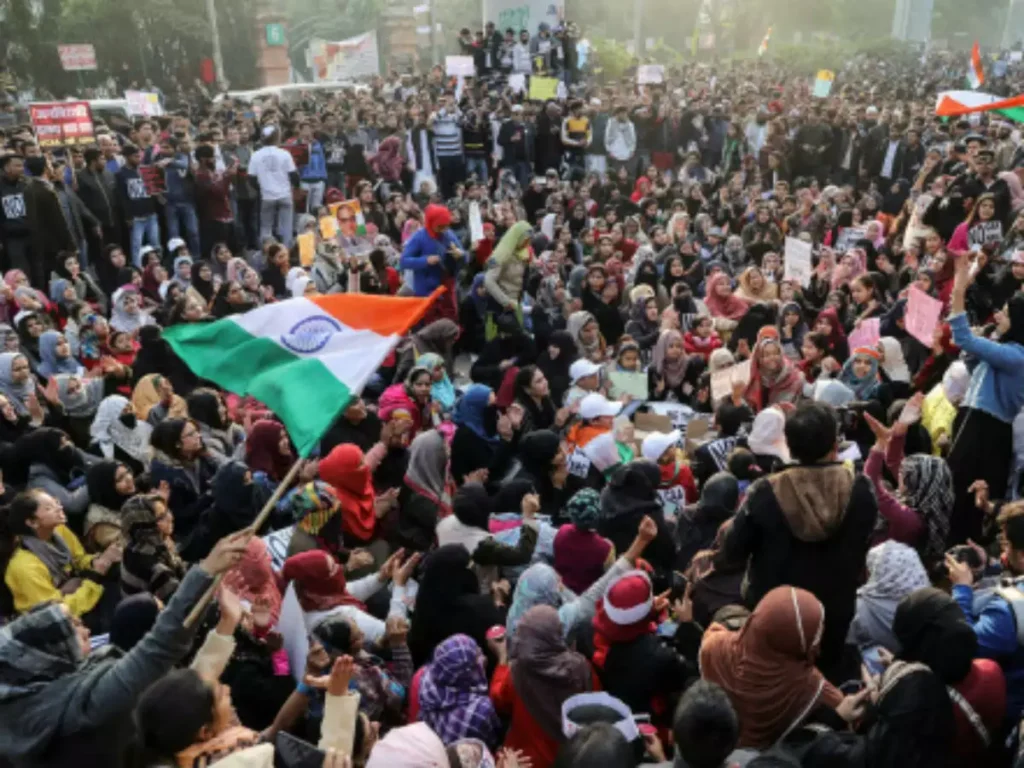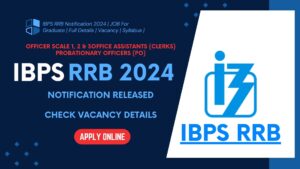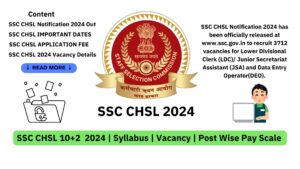The Citizenship (Amendment) Act, 2019 (CAA) rules have been notified by the central government. This happened weeks after government home minister Amit Shah announced that the 2019 law would be enforced before the Lok Sabha elections.

The CAA amends the Citizenship Act of 1955 to create a pathway to Indian citizenship for Hindus, Sikhs, Christians, Buddhists, Jains, and Parsis who immigrated from Muslim-majority nations like as Pakistan, Bangladesh, and Afghanistan before December 31, 2014.
Under the 2019 amendment to the act, migrants who entered India before December 31, 2014 and experienced “religious persecution or fear of death” in their home country would be eligible for immediate citizenship.
Table of Contents
Changes in citizenship qualifications from 1955 to today?
Changes in the criteria for determining a person’s citizenship in India have been a priority for the center on several occasions, beginning 64 years ago with the passage of the Citizenship Act, 1955 , and continuing through six periodic amendments with the recent Citizenship Amendment Act, 2019, which has sparked violent demonstrations throughout India.
Article 5 to 11 (Part II) of the Indian Constitution govern the conferment of citizenship.
The Citizenship Act of 1955, as amended by the Citizenship (Amendment) Acts of 1986, 1992, 2003, 2005, 2016, and 2019, governs this topic.
What is the Citizenship Act, 1955?
The Act states that a person can become an Indian citizen if he was born in India, has Indian parentage, or has lived in the nation for a period of time.
However, illegal migrants are barred from obtaining Indian citizenship.
An unlawful immigrant is a foreigner who:
(i) Enters the country without valid travel documents (e.g. passport and visa),
or
(ii) Enters with valid documents but remains for an extended duration.
Illegal migrants may face imprisonment or deportation under the Foreigner Act of 1946 and the Passport (Entry into India) Act of 1920.
The 1946 and 1920 Acts authorize the central government to regulate foreigner’s entry , leave and residence in India.
The Citizenship (Amendment) Bill, 1986
According to the laws reform, being born in India is no longer sufficient to obtain Indian citizenship. To become a citizen of India, at least one of the parents must be an Indian citizen at the time of birth.
The Citizenship Amendment Bill, 1992
The Act states that a person born after January 26,1950 but before the commencement of the Act is a citizen of India if the father is Indian at the time of birth; after the commencement of the Act, the person is Indian if either of the parents is Indian. It also substitutes reference to “male persons” with “persons”.
The Citizenship (Amendment) Act, 2003
Parliament passed the Act in December 2003, and it got presidential assent in January 2004. It is known as “Act 6 of 2004”. The Act updated the Citizenship Act of 1955 by introducing and clarifying the concept of a “illegal migrant” who might be punished or deported.
Citizenship (Amendment) Act, 2016
In 2015 and 2016, the central government issued two notices exempting specific groups of illegal migrants from the provisions of the Foreigners Act of 1946 and the Passport (Entry into India) Act of 1920.
These groups include Hindus, Sikhs, Buddhists, Jains, Parsis, and Christians from Afghanistan, Bangladesh, and Pakistan who arrived in India on or before December 31, 2014.
This means that these groups of illegal migrants will not be deported or imprisoned for being in India without proper documentation. The Citizenship (Amendment) Bill, 2016 was introduced in the Lok Sabha on July 19, 2016, to amend the Citizenship Act of 1955. It aims to make illegal migrants from the same six religions and three nations eligible for citizenship.
Citizenship (Amendment) Act, 2019 What impact will it have, and why is it considered a problem?
In 2019, large protests, some violent, erupted across India in opposition to the Citizenship (Amendment) Act 2019. This Act has once again made headlines, with sources indicating that the government plans to notify it before the Lok Sabha Elections 2024. The bill aims to change the position of illegal immigrants for Hindu, Sikh, Parsi, Buddhist, and Christian migrants from Pakistan, Afghanistan, and Bangladesh who have been living in India without suitable documents. They are expected to be granted enhanced Indian citizenship in six years, compared to the usual 12-year residency requirement for naturalization.
Government logic Behind the CAA.
The CAA targets persons who are “forced or driven to seek shelter in India due to persecution on the basis of religion,” with the intention of shielding them from illegal immigration proceedings. The deadline for citizenship eligibility is December 31, 2014, and applicants must have entered India on or before that date. Currently, Indian citizenship is conferred to persons who were born in India or have lived in the nation for at least eleven years. In addition, the proposed change provides for the cancellation of Overseas Citizen of India (OCI) registration if the OCI cardholder violates any provision of the Citizenship Act or any other applicable legislation.
How much of the Northeast does the CAA cover?
While the CAA does not apply to regions listed on the sixth schedule of the constitution or states with inner-line permit policies, Assam has seen particularly strong criticism.
Fears remain that regularizing illegal Bengali Hindu migrants from Bangladesh under the CAA might damage the state’s Cultural and linguistic foundation.
Why is Assam upset about CAA?
Unlike the National Register of Citizens (NRC), which focused on detecting illegal immigrants regardless of religion, the CAA has faced criticism for allegedly discriminating against Muslims, violating on the fundamental right to equality guaranteed by Article 14 of the Constitution. Despite the opposition’s concerns, the administration believes that the CAA is lawful and fair.
What is NRC ?
The NRC (National Register of Citizens) contains the names of all real Indian citizens. Currently, only Assam has such a register.
The exercise could be extended to other states as well. Nagaland is currently developing a similar database called the Register of Indigenous Inhabitants.
The Center intends to establish a National Population Register(NPR) that will include demographic and biometric information on citizens.
What is NRC in Assam?
The NRC in Assam consists of a list of Indian citizens who live in the state. The citizenship register aims to identify foreign citizens in the state that borders Bangladesh.
Following a Supreme Court order in 2013, the process of updating the register began, with the state’s almost 33 million residents required to establish their Indian nationality before March 24, 1971.
The amended final NRC was announced on August 31 2019, with over 1.9 million candidates failing to reach the list.
How can one prove their citizenship in Assam?
In Assam, one of the main conditions was that the names of the applicant’s family members appear on either the original NRC prepared in 1951 or the electoral rolls up to March 24, 1971.
Aside from that, applicants could provide documents such as a refugee registration certificate, birth certificate, LIC policy, land and tenancy records, citizenship certificate, passport, government-issued licence or certificate, bank/post office accounts, permanent residential certificate, government employment certificate, educational certificate, and court records.
What should people do if they can’t find old data?
The government has established NRC Seva kendras in each district of Assam to assist people in looking for Legacy Data, providing Legacy data Rules, and receiving NRC Application forms.
1951 NRC in Assam:
The NRC for Indian citizens in Assam was originally established in 1951.
Manipur and Tripura were also given authority to establish their own NRC’S but this never happened.
The purpose of the action was to identify Indian residents in Assam amid “unabated” migration from East Pakistan (now Bangladesh) .
The list included those who lived in India on January 26, 1950, were born in India, had parents born in India, or had lived in India for at least five years prior
What happens to the Muslim Illegal migrant ?
“Non-inclusion of a person’s name in the NRC does not by itself amount to him/her being declared a foreigner,” according to the government. Such individuals will be able to plead their case before foreigners’ courts.
If a person loses a case in the court, they can appeal to the high court and then the Supreme Court.
In the case of Assam, the state administration has stated that no one will be imprisoned until he or she is certified a foreigner by the foreigners’ court.
Will CAA affect Muslims in India?
No, There is no provision for importing illegal Muslim immigrants. on Tuesday, the Ministry of Home Affairs stated that “many misconceptions have been spread regarding the citizenship Amendment Act.”
Indian Muslims should not be concerned because the CAA makes no provision for affecting their citizenship and has nothing to do with the current 18 crore Muslims, who have equal rights as their Hindu counterparts, according to the ministry, attempting to ease anxieties among certain Muslims over the CAA.
How to Apply For Indian Citizenship?

The CAA website goes live. Do you know how to apply for citizenship?
The Union Home Ministry established a web portal on Tuesday, a day after releasing the guidelines under the Citizenship Amendment Act (CAA), through which undocumented non-Muslim migrants from Pakistan, Bangladesh, and Afghanistan can seek for Indian citizenship.
According to the criteria, Hindus, Sikhs, Jains, Christians, Buddhists, and Parsis who migrated to India before December 31, 2014 will be eligible for Indian citizenship.
To apply for citizenship under CAA, applicants must log in to the website with their personal email address and cell phone number. They will next need to fill out the online form, provide the necessary documents, and pay the price.
The status of the application can be tracked through the website. The final outcome will be informed through email and SMS.
FAQ (Frequently Asked Questions) About Citizenship
1) I wish to obtain Indian citizenship. How and where do I apply?
To apply for Indian citizenship under the Citizenship Amendment Act of 2019, visit the website indiancitizenshiponline.nic.in. The status of the application can be tracked via the website. The final decision will be sent via email and SMS.
2) Where can I submit a hard copy of the citizenship application form?
A hard copy of the application form must be presented to the office of the district collector or district magistrate in the applicant’s area of residence. If the applicant resides outside of India, a copy of the application must be given to the Consular General of India.
3) How long will it take to gain Indian citizenship?
After submitting a paper copy to the district collector’s office, the application must be delivered to the state government within 60 days, along with a report. Following receipt of the collector’s report, the application must be forwarded to the central government within 30 days.
4) I received a letter requesting additional or insufficient papers. How and where should I submit these?
The other essential documents must be uploaded to the indiancitizenshiponline.nic.in website using the file number. A paper copy must also be presented to the office of the district collector for the region.
5) I am of Nepali and do not have a passport or visa. Can I apply online for Indian citizenship?
In the absence of a passport, one may upload a Nepali citizenship certificate, a voter ID card provided by the Election Commission of Nepal, or a limited validity picture identity certificate issued by the Nepalese Mission in India. Children aged 10 to 18 can upload a school-issued photo ID if accompanied by parents with appropriate travel records.
6) I spent 25 days outside India in the 12 months preceding my application for Indian citizenship. Am I eligible?
Those seeking Indian nationality will be allowed to apply once they have spent at least 12 months in the country prior to the application deadline. If one is unable to do so, the applicant must provide facts about the specific circumstances. If the Centre is convinced that special circumstances exist, it may reduce the requirement for a residency period of twelve months prior to the date of application by up to 30 days.
7) I am a foreigner who has been living in India for over 20 years. Am I not a citizen of India?
Simply remaining in India for an extended period of time does not qualify you for citizenship.
8) I do not hold a valid foreign passport. May I apply for Indian citizenship?
Sections 5 and 6 of the Citizenship Act of 1955 state that a “illegal migrant” is ineligible for Indian citizenship.
9) I was given an in-principle acceptance letter and requested to abandon my Pakistani nationality. However, the Pakistan Embassy does not issue a renunciation certificate. What shall I do?
Applicants from Pakistan and Afghanistan’s Hindu or Sikh populations may submit an affidavit instead of a renunciation certificate. Other applicants, however, are required to produce a renunciation document from their country’s embassy.










[…] Read More : What is CAA & NRC and How it affect Indian Citizen ? […]